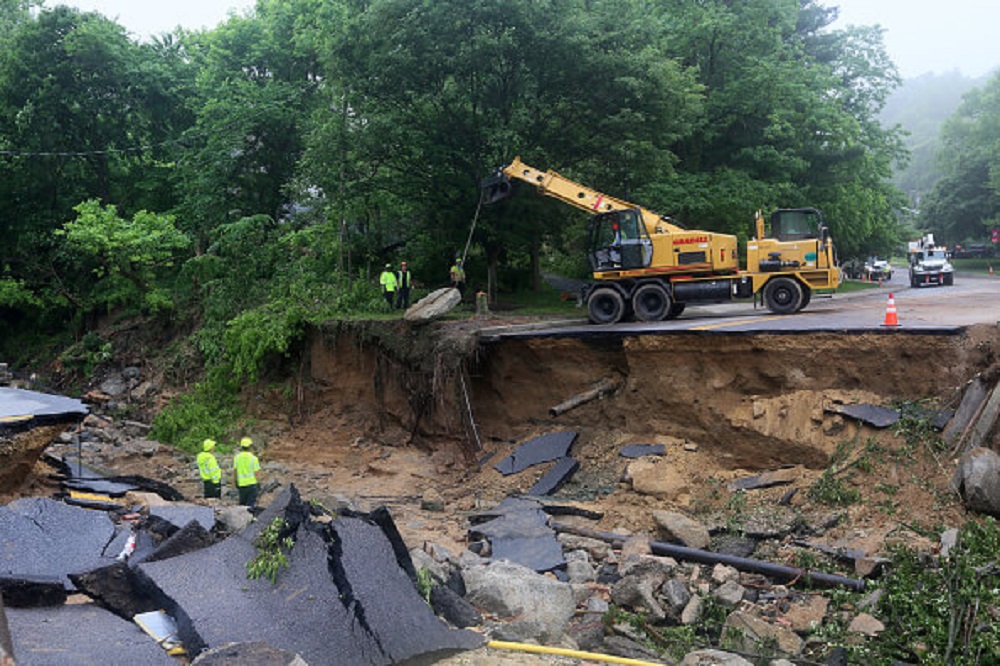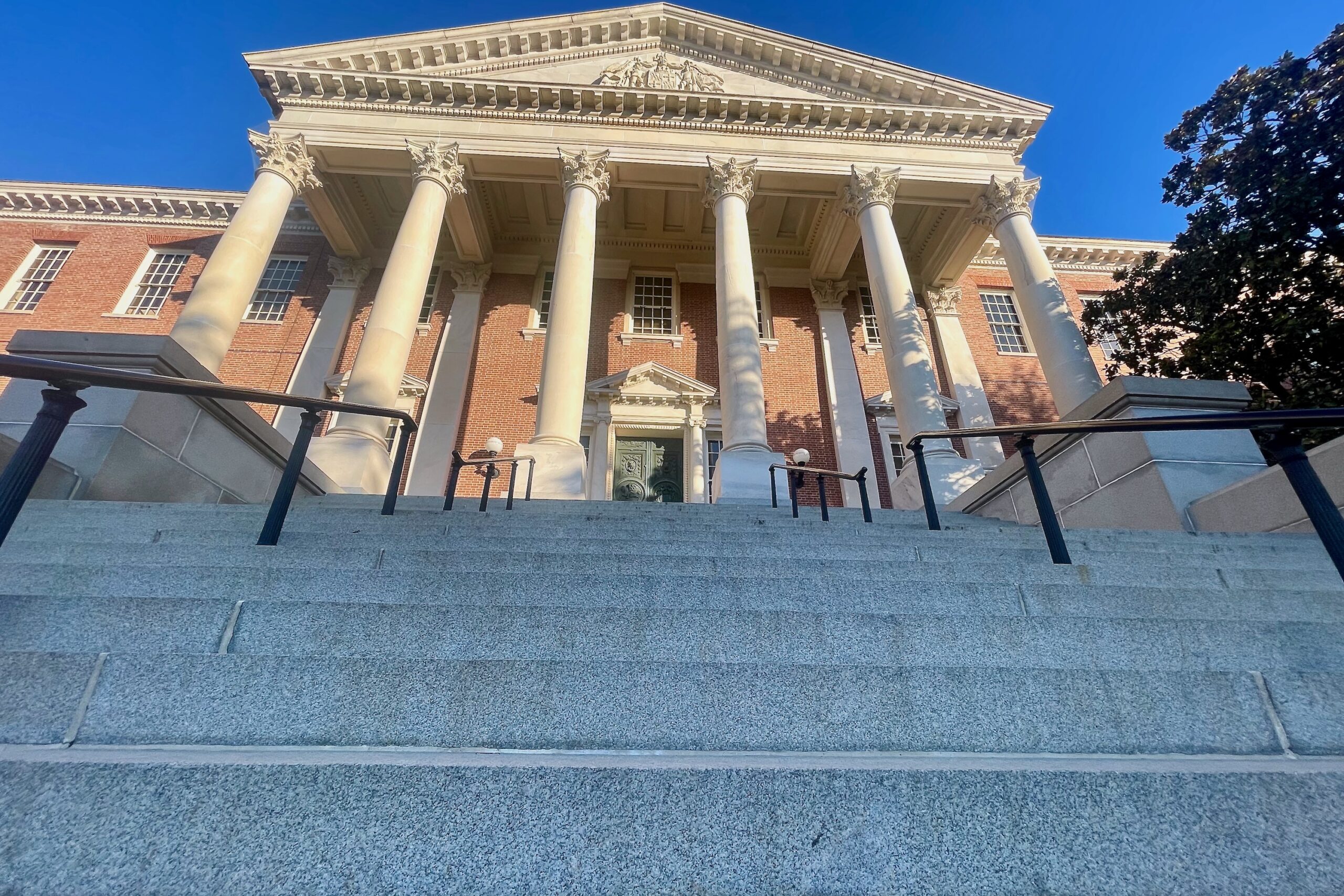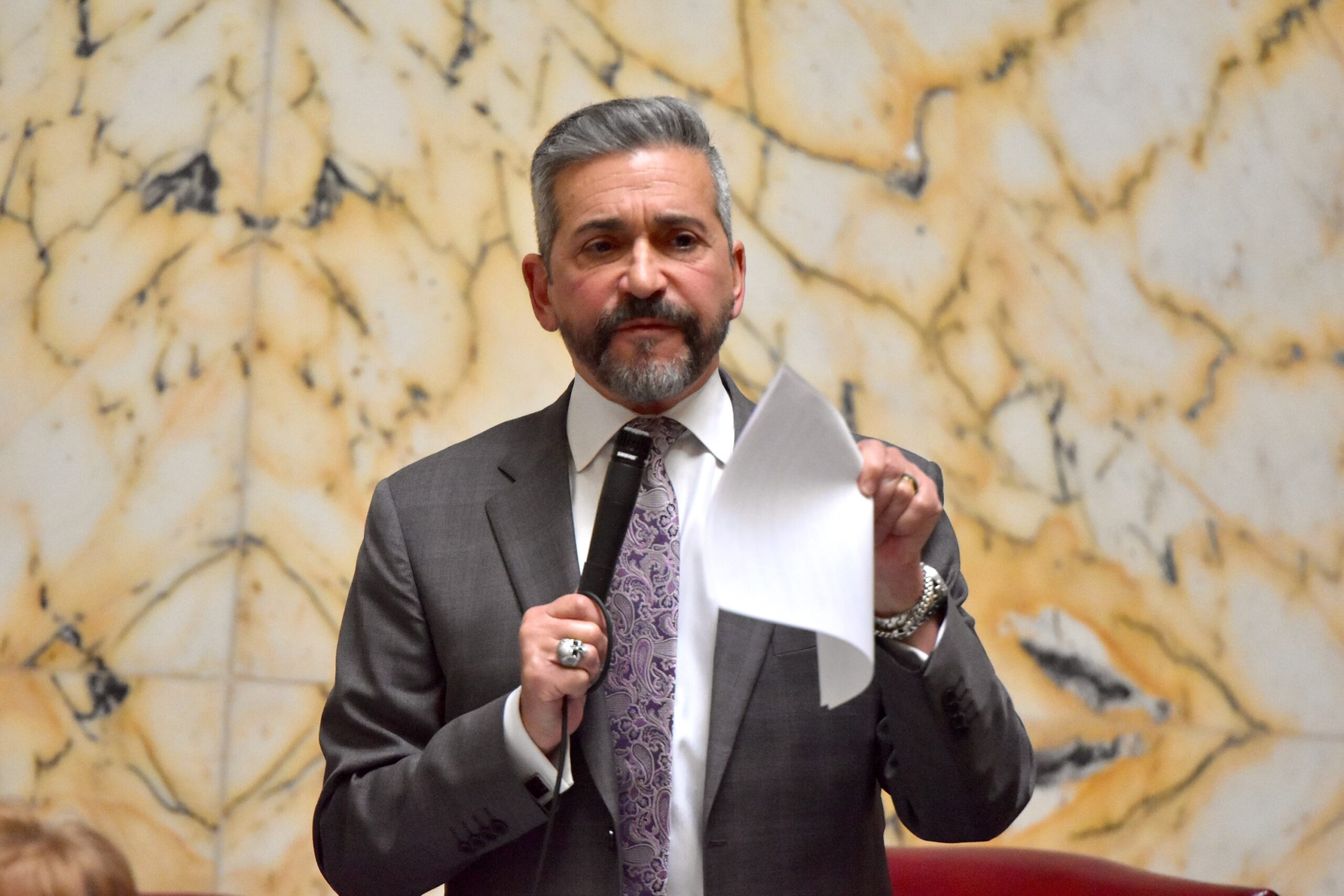State lawmakers want local governments to prepare climate crisis plans

As state agencies begin implementing the ambitious Climate Solutions Now Act of 2022, which confronts the effects of global warming in multiple ways, two lawmakers are back with a bill they floated last year to require counties to put together a climate crisis plan, outlining how they’d prepare for and respond to emergencies.
Advocates for the bill say it’s even more necessary now that the statewide law is in effect and argue that the legislation dovetails with provisions of Climate Solutions Now.
“This is just an opportunity to ensure that our local communities participate in the much broader requirements laid out in the climate bill,” said Sen. Ben Kramer (D-Montgomery), who is sponsoring the local climate crisis plan mandate in the Senate.
But while the legislation has been embraced by environmental groups, it’s facing stiff resistance from the Maryland Association of Counties (MACo) — and the often-combative Kramer is engaging in a war of words with the large and venerable organization that represents the state’s 23 counties and Baltimore.
“There is an element of ‘the sky is falling’ with the bill opponents, with those who are going to cry that implementation of this bill is going to cost zillions of dollars,” Kramer said during a hearing Thursday of the Senate Committee on Education, Energy and the Environment. “There’s nothing in the bill that says [the counties] have to implement anything. They just have to plan and make estimates for what those costs are going to be.”
The bill would require all 23 counties and the city of Baltimore to prepare a climate crisis plan and submit it to the Maryland Department of the Environment for review by June 1, 2024.
The legislation lays out 15 criteria for local officials to consider in their analysis, including how to increase the county’s use of renewable energy across multiple sectors; how to decrease greenhouse gas emissions; preparing an inventory of the infrastructure that’s most vulnerable to climate destruction; establishing adaptation strategies; and estimating the cost for all the necessary policy changes and preparations.
The upside, Kramer said, is that each jurisdiction can design its own crisis preparation and adaptation plan without adopting a “one-size-fits-all solution,” while at the same time gearing up for certain mandates laid out in the broader climate legislation.
“In Allegany and Garrett [counties], coastal flooding is not an issue,” Kramer said. “But ski resorts that bring in all the revenue and attract the people to come in have to worry about the lack of snowfall. The idea here is each jurisdiction has a role to play in addressing the climate crisis.”
The bill’s House sponsor, Del. David Fraser-Hidalgo (D-Montgomery), said the legislation merely asks every jurisdiction to prepare for the worst.
“Whatever you’re doing in your life, it’s always better to have a plan and never need to use the plan than it is to be caught in a situation where you’re panicked because you’ve never actually thought about what you need to do and then you’re caught flat-footed,” he said.
The bill, Fraser-Hidalgo added, asks local leaders to contemplate questions like, “What do you do with increased water? What do you do with increased heat? What do you do with all the issues associated with climate change?”
But MACo and lawmakers from smaller jurisdictions are sounding the alarm about the potential costs — even of preparing a study.
“There’s a big difference between the bigger counties and the smaller counties,” said Sen. Mary Beth Carozza (R-Lower Shore). “This is a tremendous lift for smaller counties.”
Carozza said that when she saw that the estimated cost of preparing a climate crisis plan could be about $500,000 for smaller counties, “I almost fell out of my seat.” (Larger counties have estimated greater costs.)
Kramer replied that local governments should have the in-house expertise to prepare the climate plans.
“Nothing says you have to go out there and hire high-priced consultants,” he said.
Dominic Butchko, an associate policy director at MACo, addressing Kramer’s complaints about MACo’s opposition to the bill, said he was glad Kramer read the organization’s written testimony before Thursday’s hearings, but observed, “I also wish the bill sponsor had read the fiscal note.”
Butchko said that while MACo supported the intent of the legislation, “there are three reasons why this bill is bad: [it’s] duplicative, excessive and wasteful.”
Butchko said the bill tries to do too much when the correct approach should be breaking the building blocks for fighting climate change into smaller chunks.
“You don’t put it in a 1,000-page Harry Potter book,” he said.
Kramer called MACo’s arguments “misleading and disingenuous.”
Because every piece of legislation in Annapolis regarding energy and climate impacts different industries, representatives of these industries are out in force to testify. Owners of heating oil and gas companies testified against the measure Thursday. At the same time, representatives of a bioenergy company are seeking to be included in the bill, asking that their energy source be considered part of the low-carbon solutions that the legislation envisions.
Jamie DeMarco, the federal policy director at the Chesapeake Climate Action Network, one of the environmental groups supporting the legislation, said the bill simply asks local governments to think differently about the climate crisis.
“It’s always easiest to keep doing what you’ve always done,” he said. He urged lawmakers not to succumb to “the power of inertia.”




 Creative Commons Attribution
Creative Commons Attribution